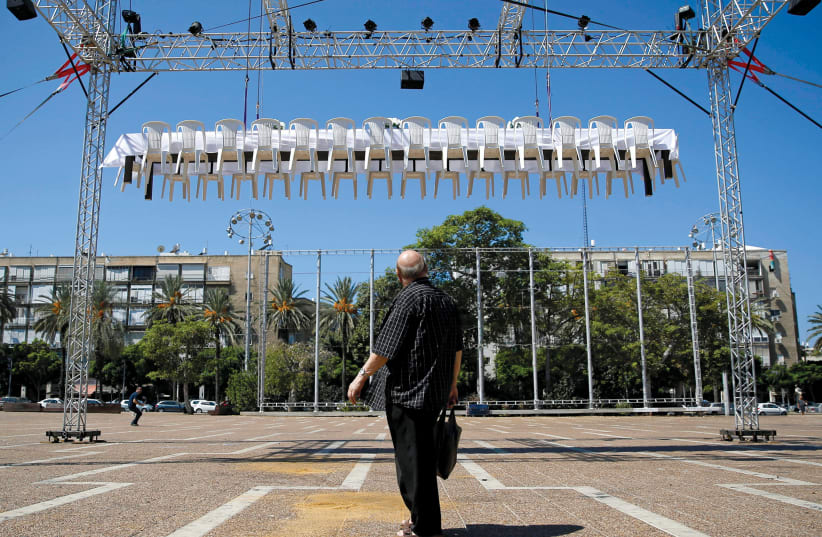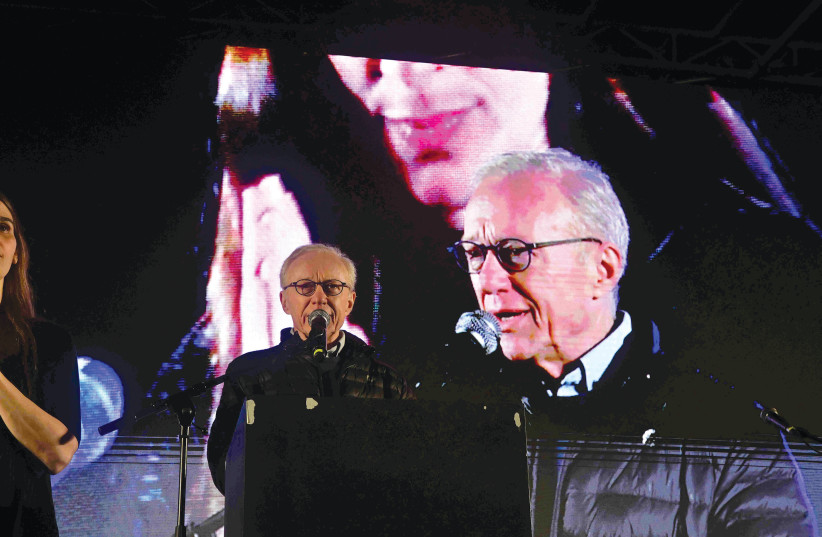Israel has one of the highest cost of living rates in the world. Most of the population of Israel is priced out of affordable housing. Not just young first-time buyers but also upgraders. The cost of living does not occupy center stage for the new government, whose focus currently is the constitutional revolution. Meanwhile, more of my circle of friends and acquaintances tell me they are moving overseas – maybe not to greener pastures but certainly to cheaper ones.
Referring to the constitutional changes in the country, Israeli writer David Grossman told a recent mass demonstration in Tel Aviv: “We feel exiled in our own land.”
“We feel exiled in our own land.”
David Grossman
I know of quite a few born and bred Israelis who are opting for exile due to being priced out. The average cost of a home in Israel in 2022 was NIS 2 million, while the average income was NIS 12,000. On average, to buy a home in Israel, one needs 158 monthly payments of one’s gross salary, which amounts to a period of 13 years.
In 2020, one needed “only” 139 months’ salary on average – an increase of 19 months. To buy a dwelling in Tel Aviv, one needs 244 months of gross salary (based on the national average), a jump of 50 more months compared to 2020. Unlike the US or Canada, where there is abundant affordable property for rentals, Israel is overcrowded and expensive. There is a decline in homeownership, and a generation who can’t afford to leave bricks and mortar to its heirs is emerging.
Israel's sky-high prices and an economic crisis
Israel’s Consumer Price Index, a measure of inflation which tracks the average cost of household expenses like food, clothing and transportation, is up 5.3% for the year, the highest inflation rate in 20 years. Israel ranks as the sixth-most expensive country in the world for groceries. Having lived in Barcelona for 14 years, I am still able to fill up two shopping carts of groceries there for the price of one in Israel whenever I go back to visit.
Over the last 15 years, the price of homes in Israel went up by 8% annually, while the Bank of Israel continues to raise interest rates to prevent the economy from overheating. Mortgage rates keep rising, making it difficult for would-be buyers to realize their dreams unless they have, as the backronym goes, Ph.D (Papa has Dough). Rents have also gone up. In December 2022, they rose by eight percent.
Automobile prices are almost three times more expensive than in the US. Car insurance is up by 23%. And the list goes on.
The National Insurance Institute has just published its Annual Poverty Report, which makes for very somber reading. In 2021, around two million people lived below the poverty line. As is always the case, it is the most vulnerable sectors of society who pay the price: children, the elderly, people with mental problems. More than a quarter of the children in our Start-Up Nation and a fifth of seniors are poor – twice the percentage in OECD countries.
Behind the numbers are people for whom daily living is a challenge. The economic crisis has many ramifications. Retired professionals resort to food banks for basic necessities; parents are forced to cut much-needed tuition and psychological help for their children; and there is a marked rise in antidepressant medication.
Tali, a mother of four who used to lecture at a university, fell seriously ill with COVID and lost her job. She is now facing an eviction order, as she is behind on her rent. She calls the present situation in Israel ”an economic hell,” as one can never catch up with rising costs of living.
“We are a rich country populated by poor citizens.”
Eran Weintraub
Eran Weintraub, the director of Latet, Israel’s largest food distribution center, put it poignantly: “We are a rich country populated by poor citizens.” The state should take a page from the book of these numerous nonprofits that truly reflect the generous spirit of this nation and are the genuine advocates of those who are priced out. ■
Shoshana Tita is a writer and director of TLC of Potomac, Maryland, who now resides in Jerusalem.


